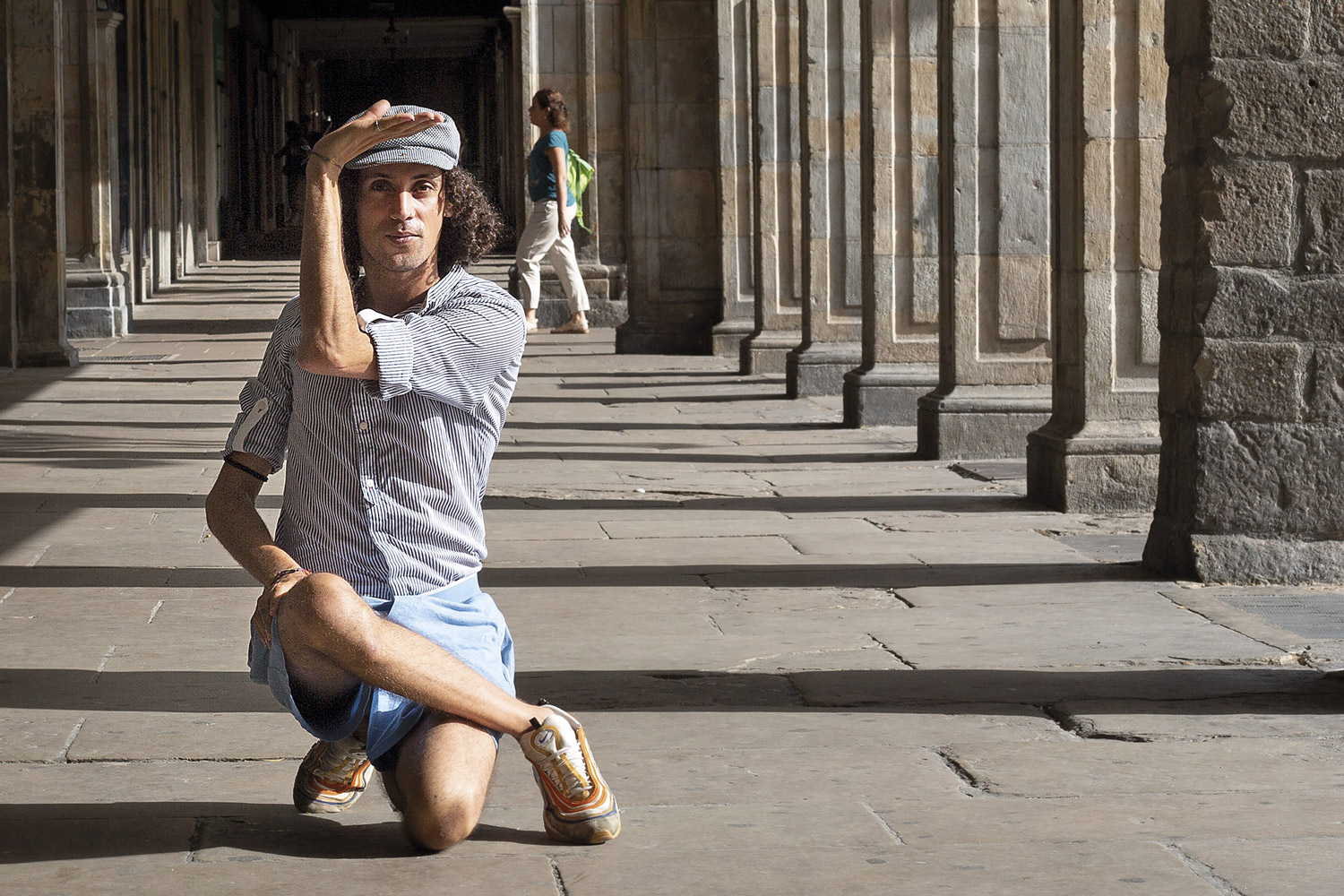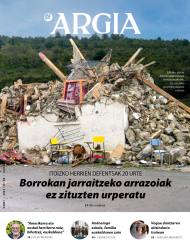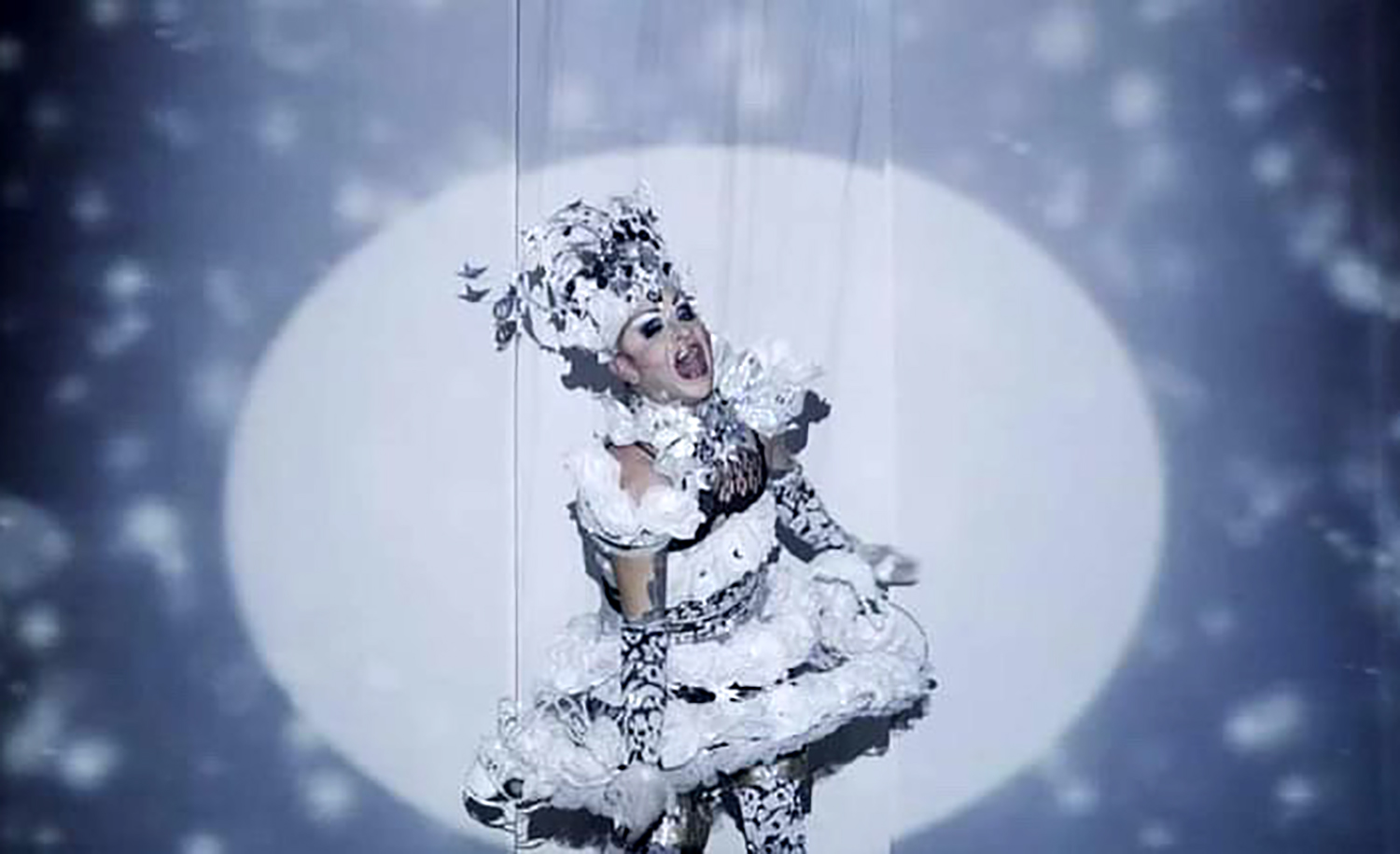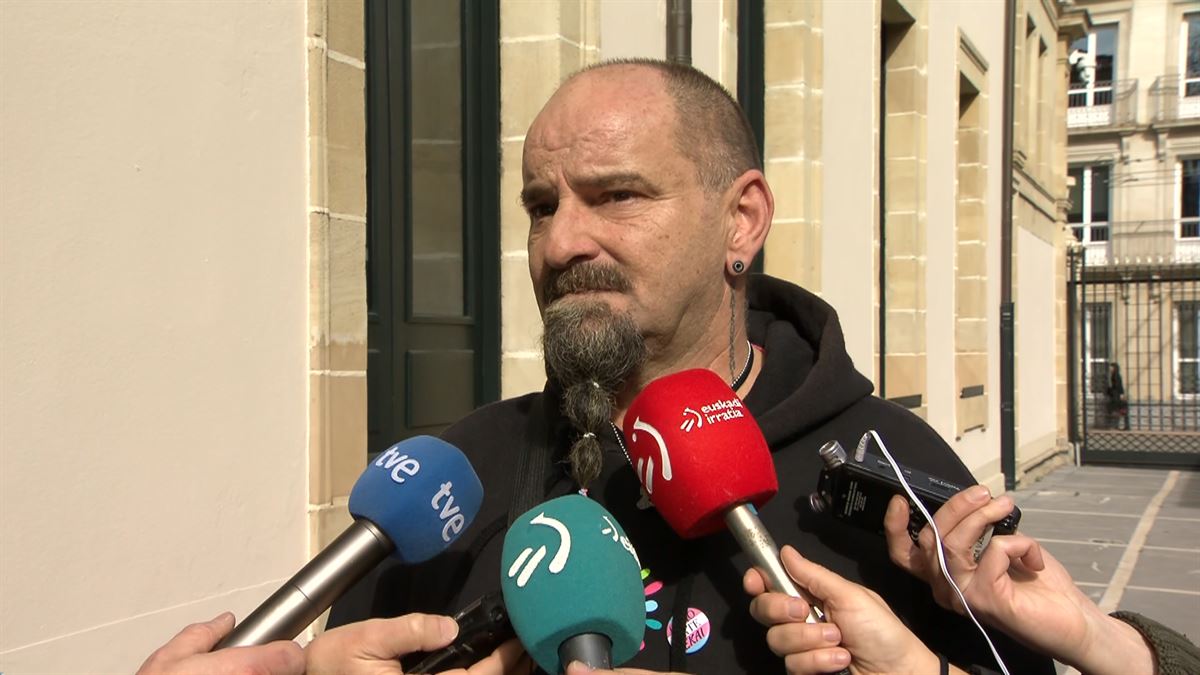"Vogue is a space to create the selected family"
- Vogue is a dance created by trans racist people, for trans racialized people. After watching videos on the Internet, Anouar Merabet (Martil, Morocco, 1991) met him, and as there was no community in Euskal Herria, he went to study in Paris. He then created the house Kiki house of Anunnaki in Pamplona, the only house in Euskal Herria. Merabet is known as Nefertiti.

Is it more than a dance?The word vogue
comes from vogue fem and refers to an existing category in the ballroom community. It arises from the imitation of the images and lines that appeared in Vogue magazine. It comes from the trans identities of the 1970s, in which few trans individuals performed surgeries, used concrete movements to cover the body parts that produced dysphoria.
Is it also a space for empowerment?It
is about empowering vogue and for that you have to be tough. Slowly we've been working on things, for example, as you say, we're going out in the street with a big loudspeaker to see what we do with people's reactions. It's very difficult to be empowered at all times, but because you want to be able to dress yourself, being yourself without any expectation or pressure, without paying attention to the looks of others, is terrible. In addition, vogue is a space to learn, share ideas, clothing and more intimate things and create a family elegida.Eres the mother of Kiki
house of Anunnaki. How should a mother be? It is a relationship based
on respect and trust. The mother must listen, advise and be a reference. We have lived through very hard things together and helped them cope with family situations. Even if everyone has their own experiences, I can understand what they feel and help them along the way because I have also lived it. However, I have also been afraid, because I have questioned whether I was being a good benchmark or not, because I went out, drank and other things, but I think I have been a good mother for what my children have told me and I have been by my side.
"The word Vogue comes from the trans identities of the 1970s, in which few trans people practiced surgery, used concrete movements to cover the body parts that produced dysphoria."
How did you hear about vogue? As
he studied at the Marist school and there was the Catholic atmosphere of Opus, the way to flee was to dance in the house of culture. There I met Julio, a Dominican Marica, and we started dancing the funky. We spent hours watching videos on Youtoube. We once watched a video about the breakdown of beauty canons by Crystal LaBeija. As a result, we learned that there are mariches with heels and that there is dancing. We practiced it for ourselves, to dance whenever we could.
Thanks to these videos did you meet Lasseindra Ninja, the mother of the house House of Ninja?
I saw there was a great community. Being a dance of great character, you see clearly what each one looks like, and when I saw the Lasseindra videos I thought it was strong, wild, aggressive and dramatic. Then I knew that that was a dramatic fem. As I liked it a lot, I wanted to dance and feel like him.
Did he decide to go to Paris because he admired him?
I spent many years learning things about fashion like cosmetics and makeup. Then I started military in the occupied spaces and saw that there are ways to get money without working eight hours. I started doing the performance El Burca. It was a performance on monotheistic religions, I've always been between two religions and cultures. At the end of the performance I was vogue, but it seemed to me that to do it well I had to meet the first community and learn with community members.
What were the classes like?
It was a one-month course and we did it at night. The first contact was awesome, we circled and asked questions to meet us. He was surprised because I was from Pamplona, did not know French and did not do so easily in English. He told me that that demonstrated a great commitment to learning. Fortunately, there was an Arab person who knew Spanish and helped me a lot. As what we learned benefited me and I found it very familiar, I decided to take a year-round course.
.jpg)
Why did you decide to create a house when you
came back?In some meetings organized by the E28J platform, Asier Rikarte, my first son, was making some moves with his hands and I thought he was dancing vogue. I approached him and told him that we would come together to show what we learned in Paris. We felt a lot of empathy and it was very easy. We were walking down the street, and as more and more people were approaching, I thought it could be a way to meet militancy and it could become a benchmark. As it went well and there was interest, I decided to create a house.
Since then they have done many free shows, is it a political
choice?We have decided that space is mixed for people to know. We feel that we are still a ghetto and that we have little visibility. If we did it in a large city, because there was greater diversity, it would have been easier to charge, but in Pamplona it would lose the tone of militancy and many hetero families and many foreigners would not.
Passionate militant
“I am a racialized and immigrant person, I was born in Morocco and 11 or 12 years old I came to live in Pamplona. I am a member of the political movement of the Basque Country, an anarchist and a militant of the LGTB community. I have several projects, including vogue, and I'm trying to transfer to the community what I've learned in the militancy of everyday life. I am a mother of the house Kiki house of Anunnaki and as a mother I am a caregiver, good listener, empathetic and critical and I attach importance to the everyday.”

























